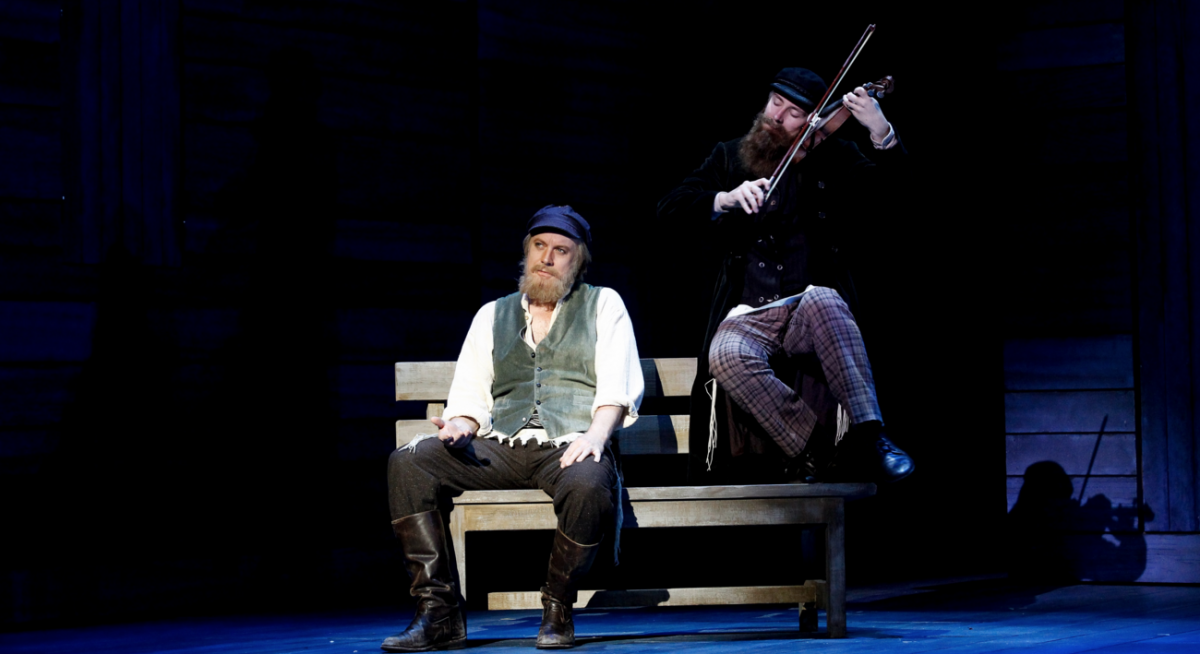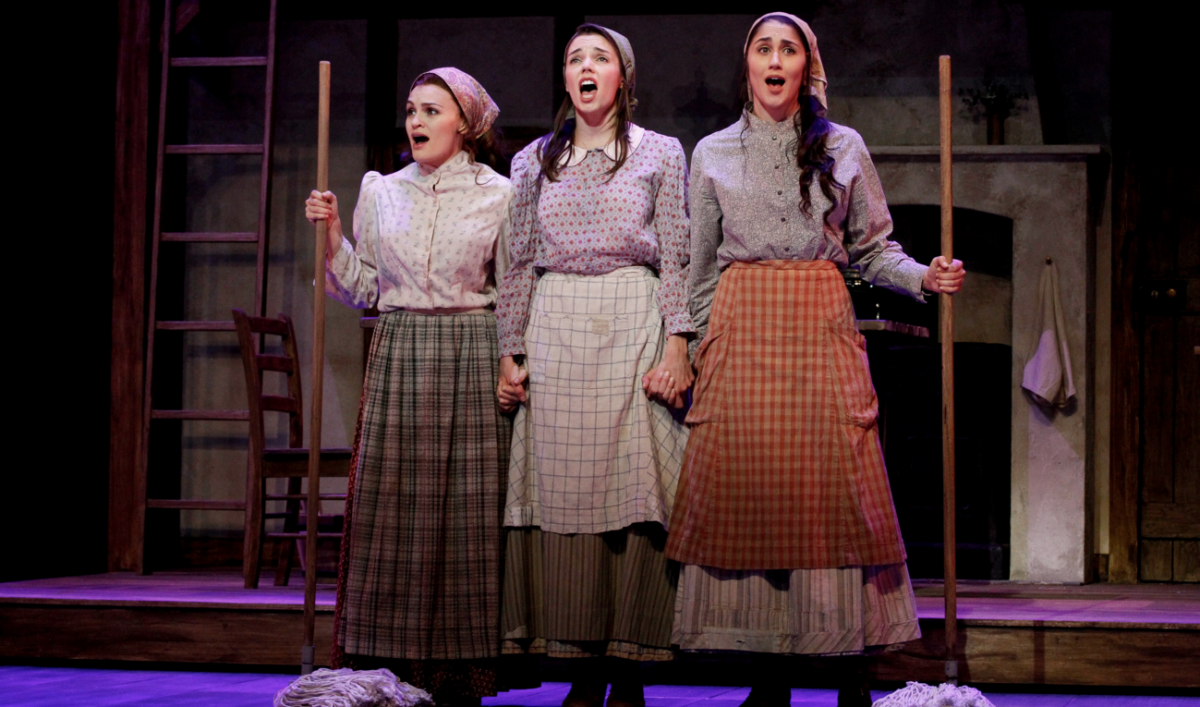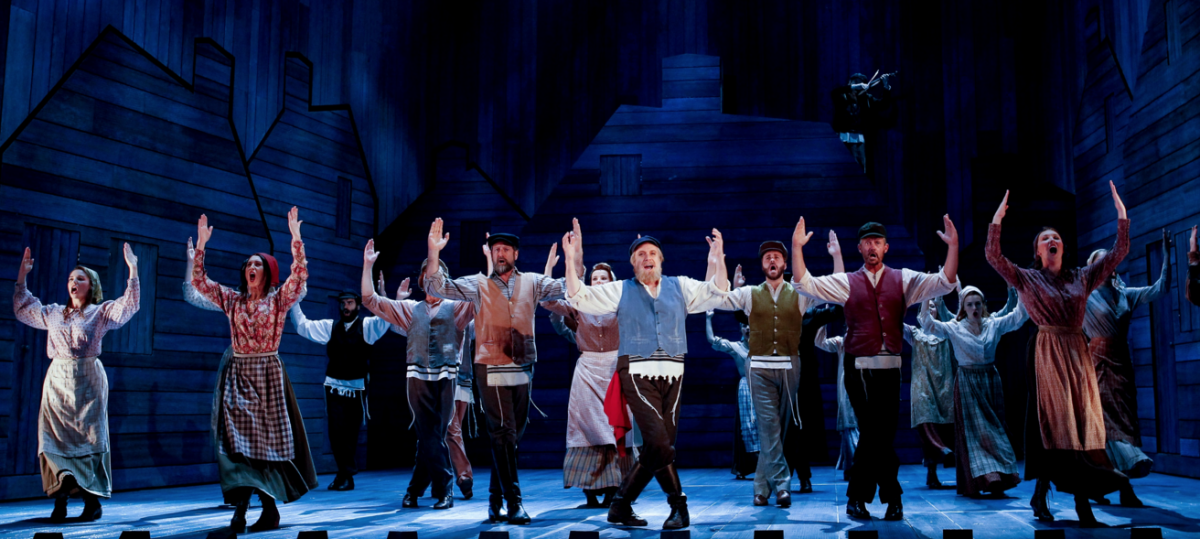★★★★☆ Anthony Warlow wows in this surprisingly relevant production of the Broadway classic.
Princess Theatre, Melbourne
January 5, 2016
Some 16,000km away on New York’s Broadway, a recent production of the much-loved musical theatre classic Fiddler on the Roof sought to breathe new life into what, on first glance, feels like a narrative with little to snare a contemporary audience’s interest. The somewhat controversial staging was framed as an anecdotal retelling, perhaps by a descendent of the people of Anatevka, expelled from Russia and scattered to the winds a century earlier. Contemporary choreography firebrand Hofesh Shechter was also recruited to add some present day swagger into this portrait of Jewish life in a rustic turn-of-the-century shtetl.
Meanwhile in Melbourne, venerated director Roger Hodgman’s new production sticks closer to the traditional incarnations of this show, but far from being old-hat this sharply focused and superbly cast account shines a surprisingly prescient light on the parallels this narrative shares with the present day. As Australia muddles its way through refugee crises, the enduring social issues surrounding indigenous Australians, and the battle for marriage equality, Fiddler on the Roof’s story of ethnic persecution, eroded cultural traditions and the struggle for the freedom to love who we choose could scarcely be more relevant to a contemporary Australian audience.
 Anthony Warlow as Tevye (photo: Jeff Busby)
Anthony Warlow as Tevye (photo: Jeff Busby)
Yet these subliminal resonances are not awkwardly forced, nor is this production a vehicle for unnecessary theatrical gimmicks. Hodgman is storyteller of exceptional elegance and nuance, and as such he has put his faith in crafting this production with a world-class cast, led by veteran musical theatre star Anthony Warlow as the quirky and charismatic Tevye. This immediately endearing portrayal is a rock-steady anchor for the production; warm, charming and with a perfectly judged tinge of irony and angst that stops short of plunging into full blown tragedy. Throughout the balance between humour and pathos is pitch perfect, emphasising the innate eccentricities of Jewish customs without stumbling into outright farce. Vocally Warlow is masterful, offering a rich, brawny baritone that can both power through the climaxes and float with tender restraint.
Warlow’s colleagues hold their own, with each of the principal characters drawn with great attention to detail. Sigrid Thornton’s Golde is a mirror image of her husband – strong-willed, pragmatic, yet thoughtfully sentimental. On opening night Thornton’s singing voice often failed her, and while opting for rhythmic speaking saved some of the more nimble numbers, the solemn integrity needed for Sunrise, Sunset was sadly lacking. Starring opposite a singer of Warlow’s calibre made for a particularly unflattering comparison.
 Jessica Vickers, Teagan Wouters and Monica Swayne (photo: Jeff Busby)
Jessica Vickers, Teagan Wouters and Monica Swayne (photo: Jeff Busby)
Nicki Wendt’s Yente, the busybody matchmaking gossip, is an impeccably distilled stereotype. Hodgman has been careful not to allow trite parodies to undo this production, but by allowing Wednt to go all in, this one character is both the comic relief and a deeply moving emblem of the dissolution of this rustic, community centered way of life in pre-revolution Russia.
The three marriageable daughters, Tzeitel (Teagan Wouters), Hodel (Monica Swayne) and Chava (Jessica Vickers) are carefully observed, retaining a familial unity while still emphasising their individuality. All three are solid singers, but Swayne particularly impresses with her devastating yet utterly enchanting performance of Far from the home I love. As she sits waiting for a train that will take her away from everything she knows and cares for, her desperately composed face is streaked with tears. Although brief, it’s a beautiful and heartbreaking moment.
Opposite this trio, the three male love interests are less consistent. Lior’s Motel is affable enough, but often errs too close to wimpy, never making the full transformation from meek, intimidated boy to a man worthy of Tevye’s daughter. Jensen Overend does what he can with Fyedka, but a soupy and slightly hammed-up Russian accent sometimes trips up the dynamic of his delivery. As the brave and radical Perchik, Blake Bowden burns particularly brightly, with his performance of Now I have everything easily vying for the highlight of the evening.
 The cast of Fiddler on the Roof (photo: Jeff Busby)
The cast of Fiddler on the Roof (photo: Jeff Busby)
The look and feel of this production is well placed, providing a relatively blank canvas with little to detract from the potency of the performances. Richard Roberts minimal wooden sets allow for seamless transitions from exterior to interior while making a nod to the simple, plain existence of this rural community. Dana Jolly’s choreography is also faithful to the source material, transforming the cast into a moving, folk-art tableaux. The shapes are iconic, strong and angular, but within this there is a link to Jerome Robbins’ original Broadway choreography, with certain set-pieces retained such as the wedding scene’s bottle dance.
Some may find this production anticlimactic, even overly bleak, but I applaud Roger Hodgman for not sanitising Fiddler on the Roof’s message of subjugation and oppression. As Tevye leads his people from Anatevka, struggling with the weight of his cart, his face is cold and uncertain, his posture deliberately frail. It may not be the classic happy ending, but it is nonetheless powerful.
Fiddler on the Roof is at the Capitol Theatre in Sydney until May 8.











Comments
Log in to join the conversation.